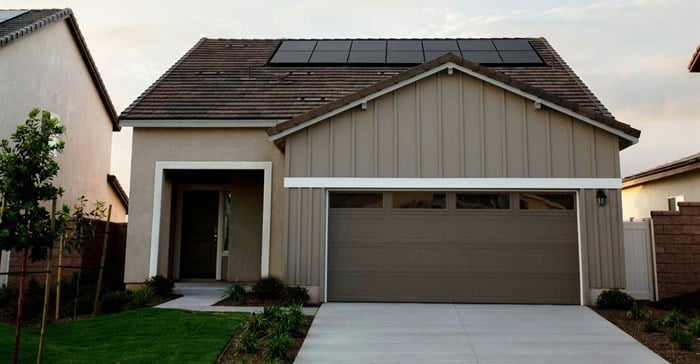
Solar panels work by converting sunlight into energy through the photovoltaic effect. These panels are made up of numerous electrically connected silicon wafer cells, which generate a charge that flows as electricity.
The silicon cells are extremely fragile, so a layer of clear glass is glued on top of the wafers to protect them from moisture and movement. Another sheet of glass or plastic protects the wafers from the back.
Regrettably, solar systems often fail to generate the amount of electricity predicted in their design. This shortfall can be attributed to various factors, some of which relate to the installation and maintenance of the solar panels.
A shadow from a chimney, an aerial, or a satellite dish on just a small portion of a solar panel can have a big impact on the amount of energy the panel can produce. This is because of the way that the cells are electrically connected.
In older panels, when there was uneven light shining on them, there was a risk that they would catch fire due to the heating effect created by the uneven electricity generation. Nowadays, the panels are equipped with components called bypass diodes which protect the panels from the heating effect, but at the cost of reduced energy production.
Every solar panel contains several substrings, each of which is a series of solar cells that are electrically connected. The bypass diodes that prevent the panel from catching fire allow each substring to generate electricity independently of the others.
This means that if one substring has cells that are in the shade, the diode will bypass it, and therefore, there would not be any energy collection from this area of the panel. This will result in a reduction in the total energy that is generated by the panel, but more importantly, it protects the panel from damaging itself.
If your panel has 10 substrings and three have shade over a small portion, it may only produce 70% of the energy it could otherwise produce
The big question is then, “How can you avoid this reduction in energy generation from happening?” The answer is to ensure as far as possible that there are no shadows falling on the panels. If you have already installed panels, this could mean moving your satellite dish and trimming trees that cause shade to fall on the panels.
If you are planning on installing solar panels, this means installing them in a way that ensures that the shadows on them from surrounding vegetation, buildings and objects are reduced as much as possible.
In a similar way to how shade has an impact on the energy that is generated by a solar panel, dirt on the panels can also impact the amount of energy generated. Dirt, such as bird droppings or leaves would create shade on portions of the panels, and therefore create the same issue as shade from surrounding objects.
But even a layer of dust on the solar panels will impact the amount of energy they generate, as it will reduce the amount of sunlight passing through the glass to the solar cells. If only 80% of the light can pass through the glass, then the panel can only produce 80% of the potential energy.
The best way to prevent dirt and dust from impacting the energy generation of your panels is to ensure that they are regularly washed. Please make sure that you ensure the safety of the person that is cleaning the panels, as panels are mostly positioned on rooftops where there is a danger of injury or death due to a slip and fall.
A safer option is to use one of the many companies that now offer a solar panel washing service, and to ensure that their employees make use of safety gear while working.
Because the silicon wafers are so fragile, any pressure placed on the glass above the cells can cause microcracks to form in the silicon wafers. These microcracks cause the efficiency of the panels to decrease, and therefore, the panel will produce less electricity than it should be producing.
This pressure could be the weight of someone walking on the panels or it could be due to bending of the panels in windy conditions if they are not installed correctly.
To prevent these microcracks from forming due to windy conditions, make sure that there are no corners cut when the panels are being installed. They should be securely fastened.
It is important to ensure that no-one walks on your solar panels at any time, whether during installation, during cleaning, or at any other time. Doing so will protect your investment and ensure that the efficiencies of the panels are not impacted.
These three simple changes can hopefully help you to improve the efficiency of your system to move the energy generation closer to the design capacity.